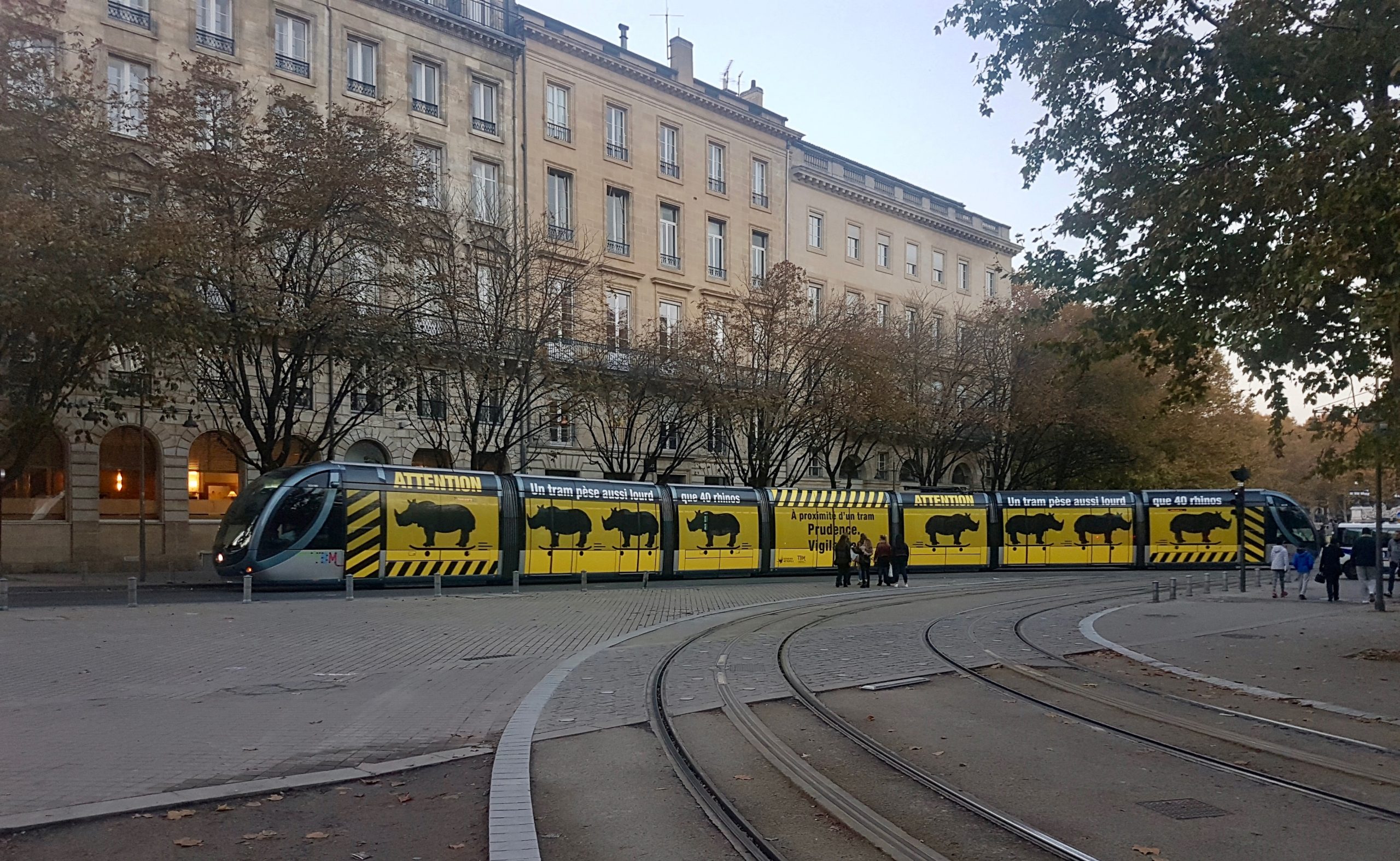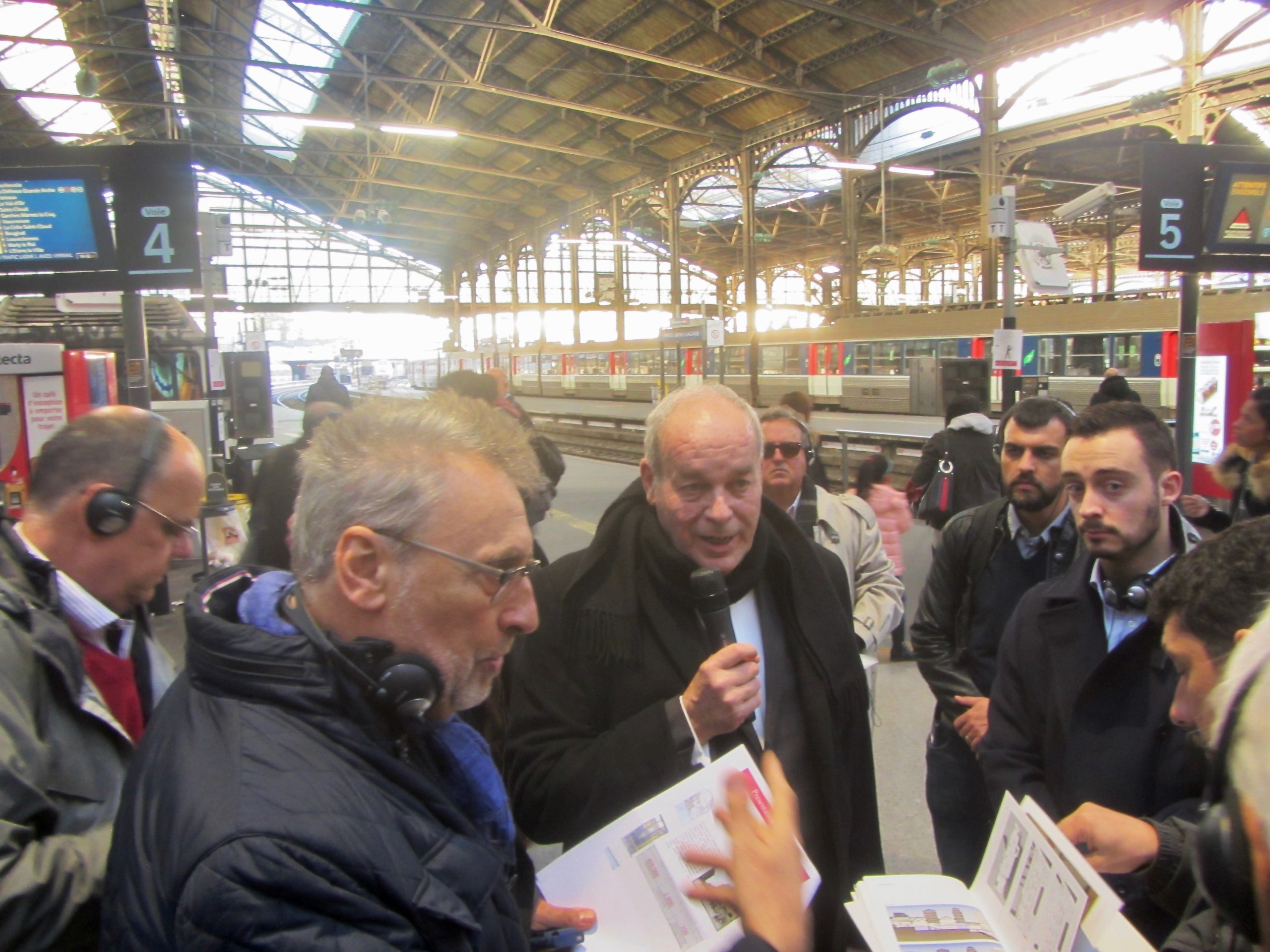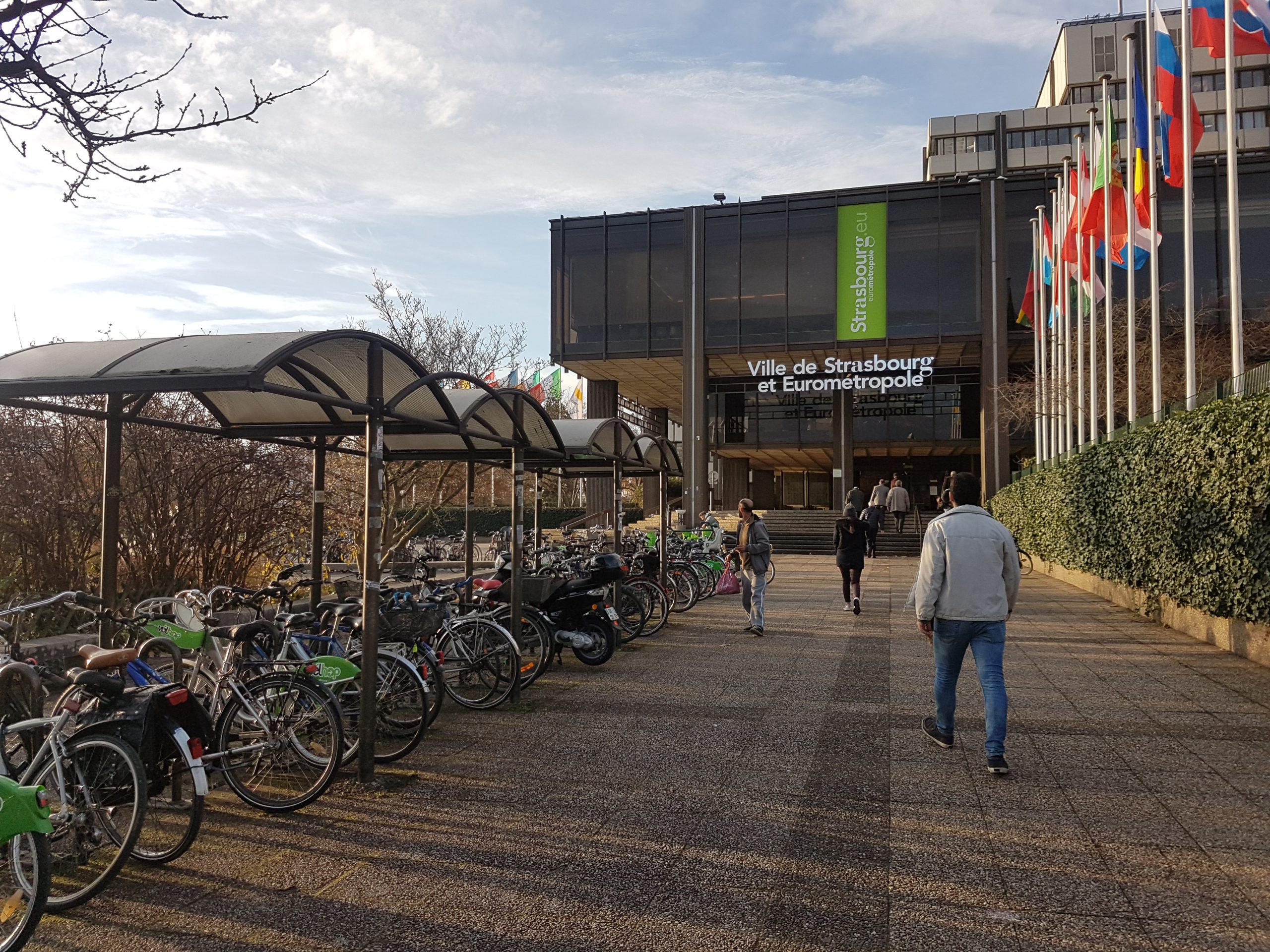A Brazilian delegation visits the transport networks of Bordeaux, Paris and Strasbourg
As part of the technical cooperation signed between AFD,
IdF Mobilités, the State of Rio de Janeiro (ERJ) and the State of São Paulo (ESP) in the urban mobility sector, for which CODATU facilitates the activities, a study trip to France was organized from November 20th to 24th 2017 for a Brazilian delegation.
In order to reinforce the exchanges that took place during the workshops organized in Brazil and to allow the Brazilians to see some of the examples presented to them, the visit focused on the following themes: metropolitan governance and urban transport, the financial aspects of an urban transport policy, tram and tram-train systems (set-up, operation and maintenance), the urban integration of mass transit projects and intermodal poles. The Brazilian delegation was able to meet with various French institutions (AOT, operators and urban planning offices) and visit the public transport and mobility networks, as well as related projects, to provide elements of reflection and comparison that will help Brazilian initiatives.
The group of Brazilians was multi-institutional and multi-sectorial. On the one hand, the delegation of Rio de Janeiro consisted of 6 participants representing the Casa Civil, the SETRANS, the AGETRANSP, the Metropolitan Integration Chamber and the Rio de Janeiro City Council. On the other hand, the São Paulo delegation consisted of 5 people representing the STM, CPTM, EMTU and METRÔ. This mix of institutions allowed a very rich inter-institutional dialogue between the participants.
The visit of the transport networks from Bordeaux, Paris and Strasbourg provided an overview of systems of different sizes and organizations, whose efficiency and governance are internationally recognized. Bordeaux is a city of one million inhabitants and known for the renewal of its historic center through the establishment of a tramway system and today, by the renovation of the district around the railway station, essentially motivated by the arrival of the TGV, a real lever for this transformation. Paris, which has 12 million inhabitants, built during the twentieth century a dense metro network then supplemented by intermediate modes such as the tramway and the BHNS. Strasbourg is a city of 500,000 inhabitants exemplary for having built an integrated network of streetcar and encouraged the use of active modes (bicycles and walking).
The challenges of setting up a tram line

In Bordeaux, the Brazilians visited the tram network, the maintenance workshop, and the PCC
In 2016, the ESP and the ERJ commissioned their first tram lines in Santos-São Vicente and Rio de Janeiro. While visiting Bordeaux and Strasbourg, the Brazilian delegation was able to see the different forms of urban insertion of a tramway, and also exploitation in common trunks or partial service. The visit of the T11 Express tram-train line, in the Paris region, highlighted the reasons for the choice by this mode of transport and transportation as a city-booster.
The French group insisted on thinking of the tram as a network and not just as a single line. This allows cities to save money by pooling their maintenance workshops. The importance of a centralized control post (CCP) for the entire network was also mentioned.
A transport infrastructure but also a living space

Visiting Saint Lazare Railway Station in Paris
The visits to the stations of Paris Saint-Lazare, Bordeaux Saint Jean and Strasbourg, have highlighted the importance of designing transport infrastructures as a piece of town, offering users and residents services and shops .
Also, Brazilians have seen that tramway projects are still a component of a larger urban project, in which transport is a structuring aspect. The delegation was able to see that the transport project is always accompanied by the creation of homes, services and businesses and the redevelopment of public spaces.
Metropolitan governance and urban transport

In Strasbourg, a rich dialog with the Eurometropole and the CTS
Meeting Bordeaux Métropole, IdF Mobilités in Paris and the Eurometropole of Strasbourg allowed the delegation to understand the characteristics of an influential AOT. It must carry the vision of the entire transport system of the city, it must implement financing mechanisms that solicits the beneficiaries of the network (the users but also the companies) and it must acquire a contractual expertise in order to have a relationship of equals with the operators. The delegation was particularly interested in the capacity to negotiate public power with private actors.
Finally, the Brazilians have also been able to understand the challenges of changing tariff policies, the transition from a zone-based tariff to a single tariff, from a social policy to a solidarity-based policy, what these initiatives represent in terms of access to mobility for the population and impacts on the financial health of the system.
The Brazilians shared their very positive feedback on the trip. They particularly noted the importance of developing a vision of the city that we want to shape and from it, planning transport and mobility projects in the short, medium and long term.
>> Full Program of the visit (in portuguese) <<
>> Minutes of the visit (available soon) <<
